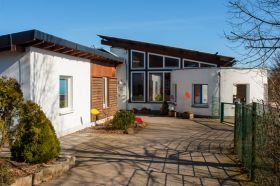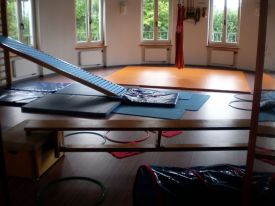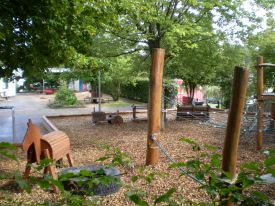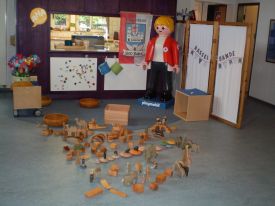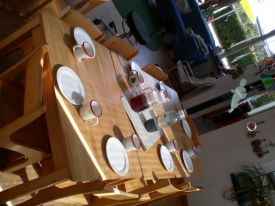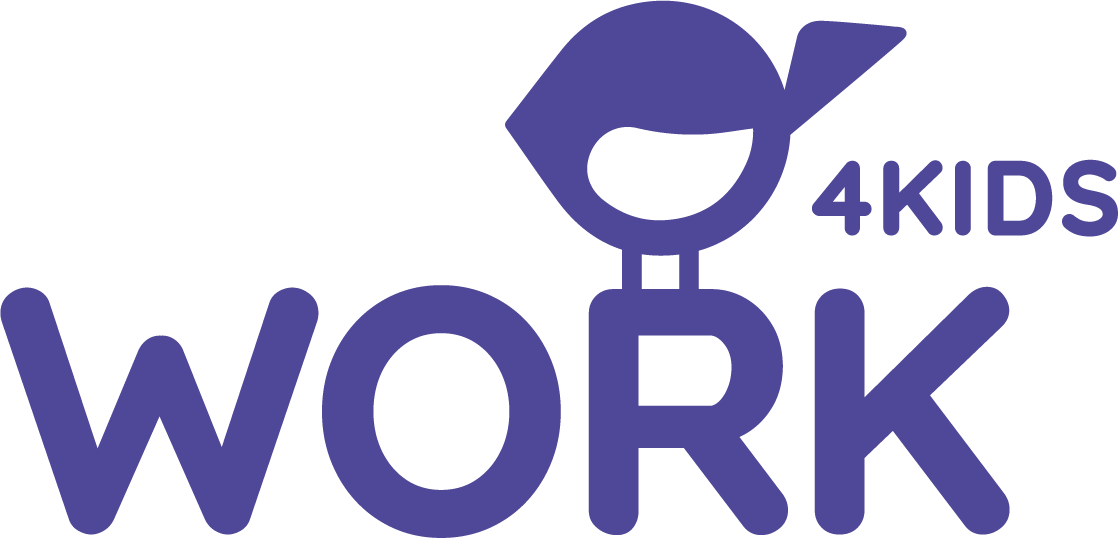Introduction/specifics
Our facility exists since 1 July 1993 and is located in the western part of the Hanseatic city of Wipperfürth. The city centre and some playgrounds, such as the "Siebenborn playground", are located near our facility and can be reached in just a few minutes on foot.
In the summer of 2007, our facility began to develop into a family center. In June 2008, it was certified as a family center. Thus, the Kita Rasselbande forms an important node in the social network for the individual promotion of the children and for the care and support of the families. Additional services offered by the family centre include the parents' café, cooking groups, theme parents' evenings, open play afternoons and more.
The action of our institution is determined by the seven principles of the German Red Cross, the institution responsible for the decoration. Thus, it acts according to: Humanity – Impartiality – Neutrality – Independence – Voluntary – Unity – and Universality.

